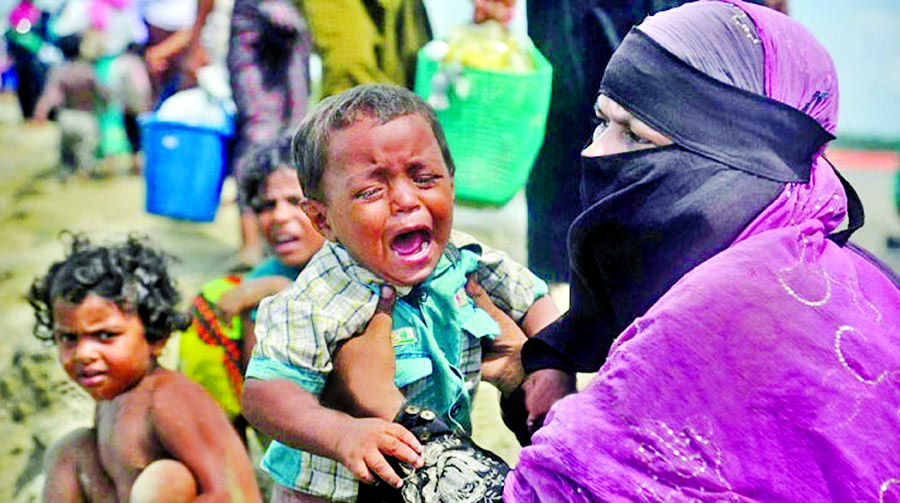
Kazi Zahidul Hasan :
Bangladesh must carry on its diplomatic efforts to take a leading role in making global opinion on Myanmar’s brutality against Rohingya Muslims as well as to pursue a sustainable and permanent solution over the Rohingya crisis.
Such efforts can also help Bangladesh to sustain global pressure on Myanmar, experts said yesterday.
Terming Naypyidaw’s proposal to form a joint working group a ‘hoax,’ by Myanmar authorities, they expressed doubt over the smooth repatriation of Rohingya refugees unless global pressure is further intensified on Myanmar to find a permanent solution to the longstanding crisis.
“Bangladesh must ramp up its diplomatic efforts for a better engagement with the global community so that Rohingya crisis could be solved at multilateral level. It would be a viable option for the country if bilateral engagement fails to drive a sustainable solution over the crisis,” Dr C.R. Abrar, a migration expert, told The New Nation yesterday.
Terming the Rohingya influx a ‘national problem’, he said, Bangladesh should exploit all options (to resolve the problem) considering the national interest.
“Myanmar authorities sent a delegation to Bangladesh after facing immense global pressure and their meeting with Bangladesh authorities was a ‘trick’ to save their face,” observed CR Abrar.
He said a riff between Bangladesh and Myanmar is evident over the repatriation process, which remained stalled since 2005. Myanmar refuses to recognize the Rohingyas who have long faced persecution and discrimination, including being stateless in the eyes of Burmese law.
“Myanmar will not take back Rohingya immediately unless global pressure mount on them. Dhaka must work proactively to convince the global communities and power on the issue,” he added.
Dr. Abrar, also a Professor of International Relations at the University of Dhaka, however, said, “If any repatriation process kicks off it must be on voluntary basis and in line with international standard thereby ensuring the safety of the victims.
“Rohingya are suffering mass atrocities perpetrated by Myanmar’s security forces. Rohingya villages are still burning. Amid this situation, Myanmar’s proposal to repatriate Rohingyas raises the question whether they sincere to resolve the crisis,” he said.
“Myanmar government is feeling the pressure following the diplomatic efforts by Bangladesh regarding the Rohingya refugee issue. But these efforts are not enough to resolve the crisis in a short period of time,” A. H Mofazzal Karim, former secretary and ambassador, told The New Nation yesterday.
“The crisis has received a lackadaisical response from major world powers. So, further efforts are needed to draw global attention and awareness over the crisis,” he added.
Mofazzal Karim said the government should send off envoys and luminaries to important capitals to bring more attention to the Rohingya issue. This would be a major step in getting their vigorous response in this regard.
He mentioned Bangladesh has always preferred having a bilateral solution to this longstanding problem and was successful in repatriating 236,599 Rohingyas to their homeland though a bilateral agreement in 1992. The 1992 Agreement recognized Rohingyas as ‘member of Myanmar society.’
“The issue turns very critical now following denial of Rohingya citizenship. I see a mere possibility to resolve the crisis through a bilateral engagement. The issue should be settled at multilateral level, and it would be the best option for Bangladesh,” said Mofazzal Karim.
He further said Bangladesh and Myanmar agreed to form a joint working group for moving forward the repatriation process. But both sides failed to give the details when the process would start. “It casts a considerable doubt in my mind- really the joint working group would work or Myanmar agreed upon on it to deceive Bangladesh that they did in previous occasions,” he added.
When asked, he said, the meeting between Bangladesh and Myanmar on the Rohingya issue was nothing but ‘eyewash’ and it staged for delaying the repatriation process.

